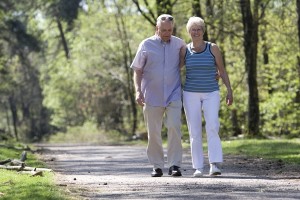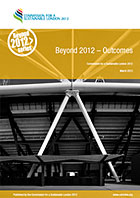
The London 2012 Games bid promised “the first sustainable Olympic and Paralympic Games”. The London 2012 vision is “to use the power of the Games to inspire change”.
What legacy means to the Commission
The Commission expects legacy to embody the principles of sustainability and demonstrate exemplary practice. The Commission is focused on assuring a legacy from the Games that ultimately means:
- A better standard of living for Londoners in the host boroughs
- Quality affordable housing
- An increase in the skills base of people living and working in the UK
- A culturally diverse society that engages positively in work, community and in cultural institutions
- People adopting healthier ways of living through sport and better lifestyle choices
- Long term job prospects for Londoners and other UK residents
- Disabled people able to freely access services, jobs, homes and community activities
- Sites ready for future sustainable, low impact development
- Residents adopting good environmental practices such as recycling and waste reduction
- Minimal impact on climate change
- Public spaces and facilities that are accessible, well used and maintained.
Delivering legacy
Many organisations are involved in realising the legacy from the Games, including:
- UK Government, coordinated by the Government Olympic Executive
- Mayor of London, through the Greater London Authority
- Olympic Park Legacy Company
- London Development Agency
- Local authorities
The UK Government has set out its legacy objectives in a statement “Plans for the Legacy from the 2012 Olympic and Paralympic Games”. This statement supersedes the first Legacy Action Plan, “Before, during and after: making the most of the London 2012 Games”.
The statement sets out four focus areas so that there is a lasting legacy from London hosting the Olympic Games and Paralympic Games in 2012:
- Harnessing the United Kingdom’s passion for sport to increase grass roots participation, particularly by young people – and to encourage the whole population to be more physically active;
- Exploiting to the full the opportunities for economic growth offered by hosing the Games;
- Promoting community engagement and achieving participation across all groups in society through the Games; and
- Ensuring the Olympic Park can be developed after the Games as one of the principal drivers of regeneration in East London.
Government publishes annual progress reports.
In 2010, the UK Government published a legacy plan for disabled people. This aims to bring about lasting changes to the life experiences of disabled people
The Mayor of London has endorsed the “Five Legacy Commitments” set out by his predecessor. These are:
- To increase opportunities for Londoners to become involved in sport
- To ensure Londoners benefit from new jobs, business and volunteering opportunities
- To transform the heart of east London
- To deliver a sustainable Games
- To showcase London as a diverse, creative and welcoming city.
The Commission has now published its first discrete review of legacy, which can be found here.
